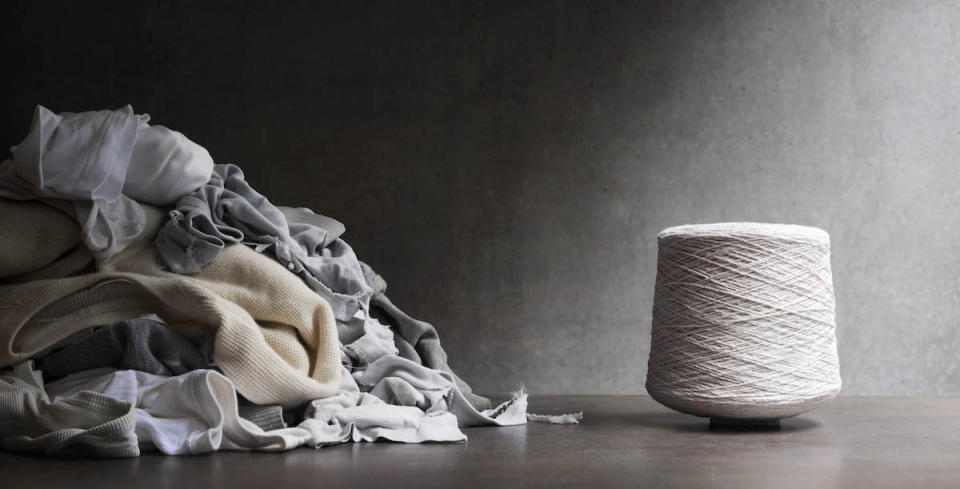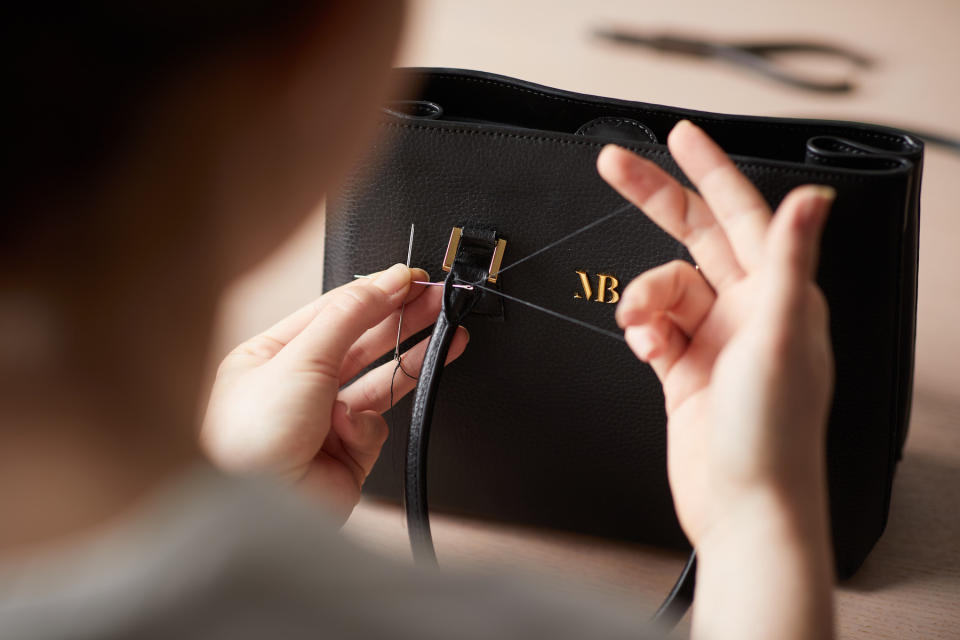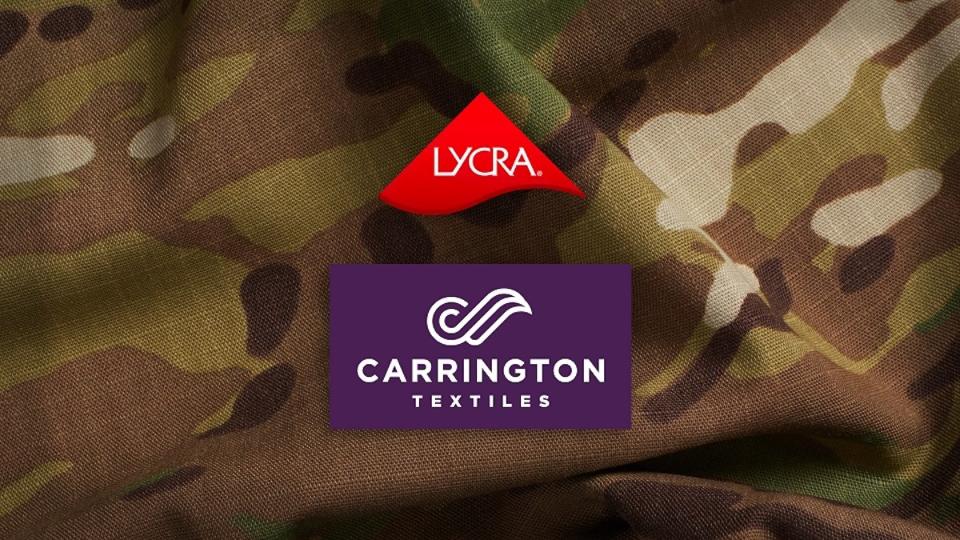Material World: eBay Australia’s Circular Fashion Fund Winner Takes Home $100K AUD

Material World is a weekly roundup of innovations and ideas within the materials sector, covering news from emerging biomaterials and alternative leathers to sustainable substitutes and future-proof fibers.
Dempstah x eBay Australia

Ebay Australia, with support from the Australian Fashion Council, has named an Australian design practice that’s recycling textile waste and turning it into yarn that can be used in knitwear as the top winner of its 2024 Circular Fashion Fund.
More from Sourcing Journal
Dempstah won the top prize of $100,000, with runner-ups RCYCL and The Very Good Bra receiving $50,000 each to support their circular business solutions.
“At eBay, our purpose is to provide economic opportunity for all, and we have a proud history of helping businesses grow through various grants globally. Circularity is the future of the fashion industry and we all have a part to play in making that transition,” Anne-Marie Cheney, eBay Australia’s fashion lead, said. “Initiatives like eBay’s Circular Fashion Fund are an important step towards achieving that goal, and we’re incredibly proud to have launched it in Australia this year. We know the businesses awarded today will drive positive change in the fashion industry.”
After spending over a decade studying and working in textiles around the world, designer and founder of Dempstah, Guy Dempster, said he knew that the current approach to textile production and consumption needed to change.
“I originally went into studying fashion design and became increasingly interested in and critical of the textile industry and the overproduction and consumption,” Dempster told Sourcing Journal, explaining that this interest led him to leave the Fashion Institute of Technology in favor of studying knitwear and knitted textiles to learn more about the manufacturing process. “I just felt like unless we are really seeing that side of things, as designers, we’re not really getting a good education on how to make things more sustainable.”
His design practice recycles Australian textile waste into spun yarn in collaboration with a network of local and global textile mills, with the mission of ensuring waste traceability and establishing fiber recovery facilities locally in Australia by establishing a mill in North West Tasmania. The company currently offers spun yarn suitable for knitwear production and recovered fiber, which can be used as an alternative to traditional synthetic fiber fill-in garments, homewares and furniture.
“I really want to set [the winnings] aside and only utilize it to do all the necessary due diligence in terms of sourcing the machinery,” Dempster said. “I’m assuming we’ll have to do subsequent fundraising, but [the winnings] is that first amount of funding that can give us the push to get things going.”
Melina Bucher

German luxury startup Melina Bucher has opened its first “manufactory” in Mannheim, specializing in vegan and biobased materials.
In Germany, there aren’t many training centers that offer apprenticeships for fine bag-makers. That, coupled with the aging of existing businesses, lack of succession, and limited knowledge of working with new and sustainable materials, has caused a decline in this professional field. But at Melina Bucher, the craft is being revived; modern and flexible working methods offer young people a “new perspective” to incorporate their values into their work.
“We are lucky that many young people apply who have learned this profession and want to make a difference,” Melina Bucher, founder of the eponymous brand, said. “The leather industry has to catch up when it comes to sustainability. Most of the components in a bag are not recyclable; we’re actively working on solutions here.”
And the brand has seen demand for those solutions, she continued. As such, the next logical step was setting up its own manufacturing factory. While promising biobased materials are in development, there’s no current plug-and-play solution—new materials, instead, need new solutions to be processed, the company said.
“Many projects have failed in recent years because brands neither have the time nor the knowledge to carry out this development work,” Bucher said. “Conversely, innovators often don’t know how the materials are processed into a product.”
That’s why the label would like to start by sharing the know-how from its own manufactory on the selection of materials, design and processing for more sustainability in the sector.
Lycra x Carrington

Global military fabrics manufacturer Carrington Textiles will present its Spartan HT Flex Lite fabric at Enforce Tac 2024, a trade fair catering to members of official security agencies and armed forces in Nuremberg, Germany.
Engineered with military-grade Invista T420 nylon 6.6 staple fiber and featuring a “strategic” 2 percent Lycra fiber content, Spartan HT Flex Lite represents a “paradigm shift” in military textile development.
“We are excited to showcase Spartan HT Flex Lite at Enforce Tac 2024,” said Paul Farrellat of Carrington Textiles. “This fabric represents our dedication to innovation and commitment to providing the highest quality solutions for the defense sector. We look forward to showcasing Spartan HT Flex Lite and our innovative defense fabric portfolio and demonstrating how it can enhance the performance and comfort of military uniforms.”
Incorporating Lycra into Spartan HT Flex Lite offers “unparalleled” benefits, Carrington Textiles said, as it provides comfort akin to cotton while simultaneously delivering added mobility thanks to its integrated stretch properties. The fabric is engineered for the rigors of military environments, making it an ideal choice for consumers who want both performance and durability.
“For military professionals, the integrity of their attire is crucial,” Virginie Bonnafous of the Lycra Company said. “By incorporating Lycra fiber, we ensure that military professionals experience unrestricted mobility, enabling them to navigate any situation with confidence.”

